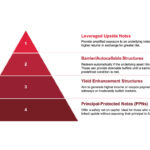What is coaching?
Most people are probably familiar with the idea of a coach. Our experience is usually from the sports field, where we may have had a coach at school or observed coaching in the professional sports era. Yet more recently interpersonal coaching has grown globally as a way of supporting individuals in their life or work. Various labels are given to this, the most common probably being “Life” or “Executive” coaching. The essence of this form of interpersonal coaching, I believe, is for a coach to help an individual find answers for themselves to questions that they themselves have, about any aspect of their life or work. It may help someone who is dealing with a challenge, wanting to make a change or trying to achieve a goal.
How is that distinct from mentoring?
Mentoring usually involves someone with greater experience or expertise, passing on guidance and knowledge to someone less experienced. Coaching is about helping someone find their own answers to questions, rather than providing the answers. An example would be, in response to the question, “How should I do this?” a mentor may say, “I suggest you do it this way… in my experience, that worked best.” Whereas a coach is likely to respond with a question like: “What ways have you thought of doing this?” So, a mentor plays a role in offering solutions or advice; in coaching the responsibility for finding solutions and a way forward falls onto the client, rather than the coach.
Coaching is about helping someone find their own answers to questions
How then does coaching apply to financial planning, given that clients go to a financial planner to get advice?
Yes, on the face of it, financial planners play more the role of mentor rather than coach. They have the financial technical expertise and experience which a client usually lacks. But there are two key challenges that financial planners face when giving advice to clients. The first is that sometimes they will give the wrong advice because the client hasn’t given them all the information needed to give the right advice. Second, the financial planner gives the right advice, but the client doesn’t take it.
Isn’t that a problem that just comes with the territory of being in a professional advisory occupation?
Yes. Doctors, laywers and other advisory professions face the same challenge. Unfortunately, there is another problem with giving advice! Ironically, giving advice can be disempowering. If you tell me what to do, then I can blame (or praise) you for the outcome of the advice.
A financial planner I worked with had a client who had a spending problem. The financial planner advised the client that they needed a budget and offered to draw up the budget for the client. Six months later, the financial planner was fired by the client because they still had a spending problem. The client had taken no responsibility for sticking to the budget because it was all the financial planner’s idea. In a way, it was the financial planner’s budget not the client’s budget!
So how do financial planners address these problems?
The key is to find a way for clients to take greater responsibility for their own financial outcomes. Research by Morningstar shows that clients are more likely to achieve financial health if they feel in control of their financial future. In other words, getting clients to feel more empowered with the decisions they make is key to effective financial planning. Helping clients take responsibility for their own decisions is what a coaching approach enables.
Does this mean that financial planners should be coaches?
No. You might be surprised by my answer. Clients are still coming to financial planners for financial advice, so I don’t believe financial planners can be just a coach. They still must draw on their expertise and experience to help clients, just like mentors.
In some ways I think we are doing the financial planning profession a disservice with the many new services we see emerging, and financial planners taking on labels such as a financial counsellor, therapist or coach to differentiate themselves. Often, there are people who operate with these labels who are not even licensed to give financial advice. But in the same way that I want to see a doctor about my physical health, I want to see a financial planner about my financial health.
Yet, you are advocating for a coaching approach to financial advice.
I definitely am. Much research shows that the greatest value that a financial planner adds is through behavioural coaching. But I’m suggesting that this approach doesn’t change the fundamental nature of the work of a financial planner, which I believe is to help clients make and implement life and money decisions. And this is the crux: a financial planner’s work is not just about the money. After all, money is simply a means to an end. I don’t believe you can help clients make sound money decisions without helping them make decisions about their life as well. And I believe that you can do that best by adopting a Coaching Way of Being.
What do you mean by a Coaching Way of Being?
A “Way of Being” describes how you turn up with your clients. If you turn up as the technical expert who sees your technical advice as your real value-add, you can provide great advice, but as I mentioned earlier, it could be wrong, or it just doesn’t land with the client. By adopting a “Coaching” Way of Being, you turn up in a way that recognises that the client is the expert in their life and that taking responsibility for their own decisions is key to their financial health. Most importantly, the financial planner turns up mindful of the fact that the person in front of them is their client, not the client’s money.
How do you develop a Coaching Way of Being?
Just like when you learn to ride a bicycle, you can only learn it by doing. So, it’s a way of being that I believe can only be learned by doing. You can’t learn it by reading a book or watching a video. The key is in the doing and the practicing.
I have run several behavioural coaching programmes designed to help financial planners develop a Coaching Way of Being. In these programmes, we develop key interpersonal skills such as being present, curious, showing empathy, asking good questions and listening deeply. Adopting a Coaching Way of Being also demands high levels of self-awareness, self-insight and self-management skills, which in fact are the foundation of this way of being. An encouraging aspect of learning to work in this way is that it not only impacts how you relate to clients, but feedback from the programme participants suggests that they have found it useful in their personal lives and in how they relate to colleagues, family and friends.
If you are interested in learning more about how to develop a Coaching Way of Being, you can contact Rob at:
rob@coachingwayofbeing.com












